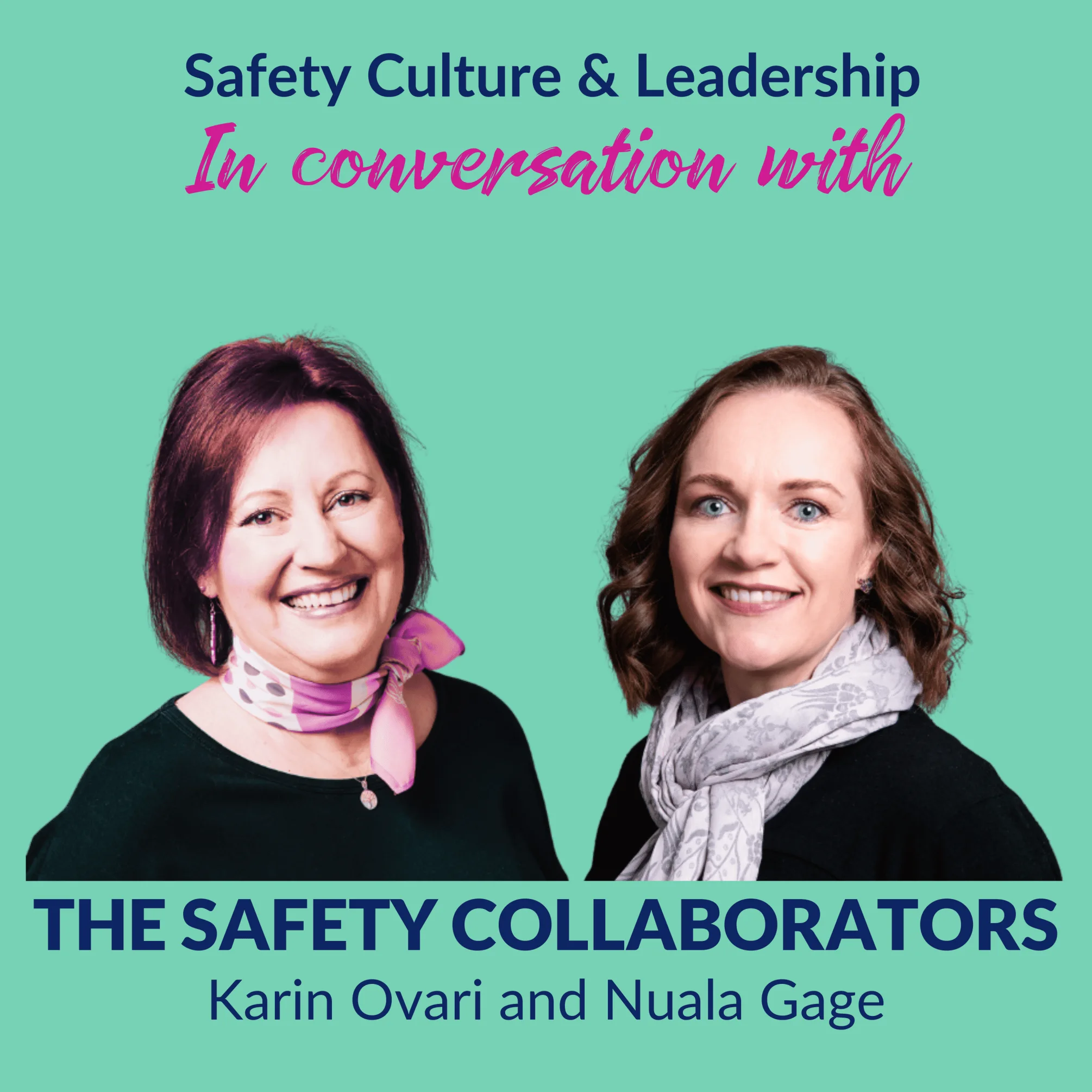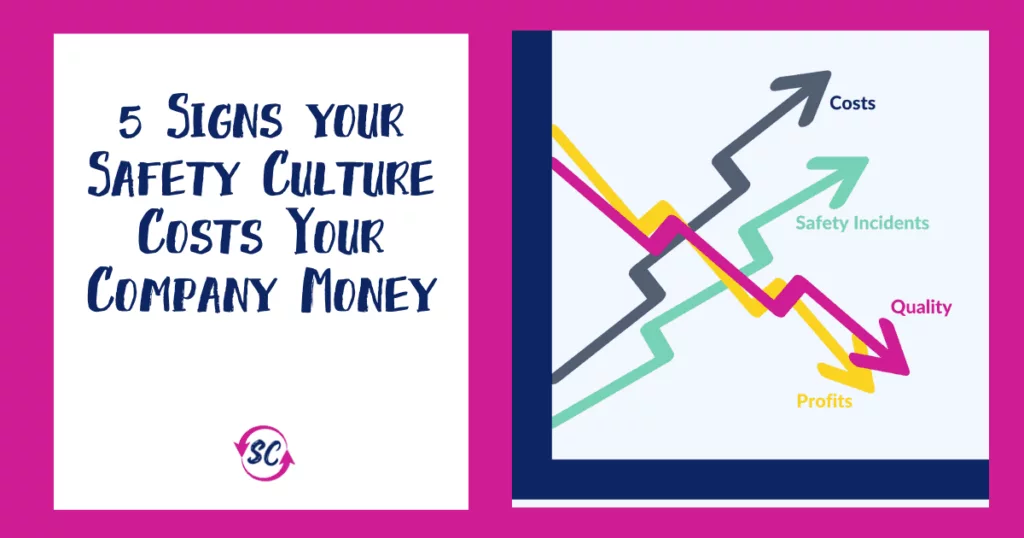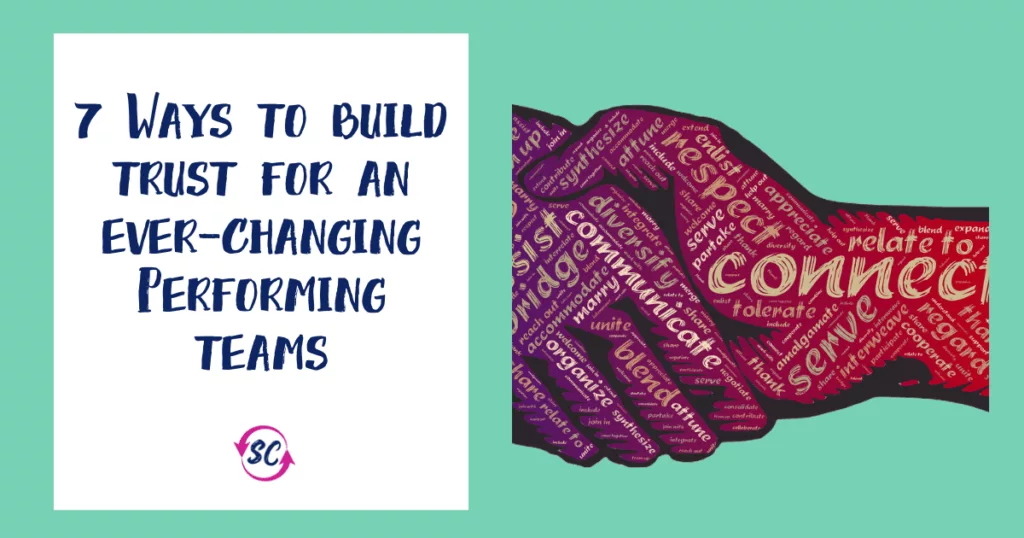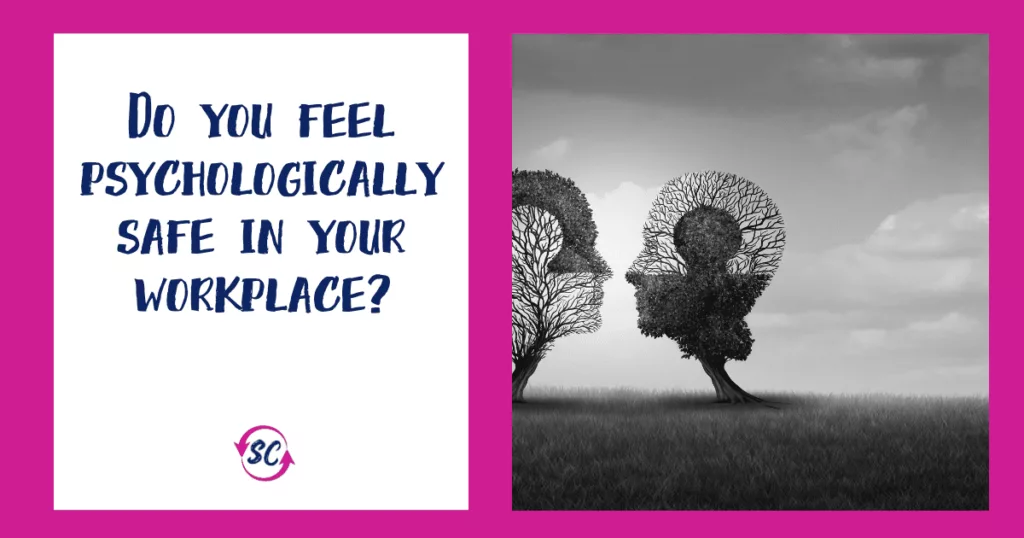Is there a negative side to your Site Safety Notice Board?

Episode 009
Sep 4, 2022
Subscribe today
In this episode...
Today's topic/question is a provocative one.
What is the 'Site Safety Notice Board's negative impact? Does it encourage psychological safety?
What are your first thoughts when you see a safety board or read safety statistics that look amazing?
Let's dive in and see where this conversation takes us.
Karin shares a personal story about the consequences of not wanting to damage the statistics of (then) recently celebrated 'no incident' milestone, amongst other ideas and situations.
So our question to you?
- How do you reward or punish vulnerability in reporting something that can affect the stats?
- How do you help people feel safe enough to speak up?
- What does your Safety Culture encourage you to do? And is it psychologically safe?
This week, we thought we would look at a bit of a provocative topic. And we're going to talk about the negative impact of the Safety Board. And is your safety board psychologically safe?
When we talk about the safety board, we're talking about that big board you see when walking to a site, driving into a site, up on the rig floor, or wherever it is. You know that board promoting the latest safety statistics.
So in principle, the intention is good. But, we often wonder what the negative consequences are. Are we measuring and promoting, and celebrating the right information?
Organisations put up these boards because they want people to see how safe they keep everyone and how well they are doing. And that the efforts they are putting into the systems and processes show these positive results. They can go to their potential clients and say, look at these fantastic stats according to recently worked hours and everything else it is good.
But when you look at a Safety Board, or you read the statistics, and they look amazing, everything's in the green, what are your first thoughts?
Our thoughts are:
- What are we not saying?
- What are we not being honest about?
Over the years, we've all had various conversations with people, and we are not convinced that people believe them anyway.
Story: Celebrating 1000 man-hours
On a project some years ago, we were celebrating 1000 man-hours without an LTI. Wow, that's phenomenal. However, at the same time, a man was in the hospital with his thumb chopped off. Because he was not sent back to his home country, it didn't have to be recorded as a lost time incident. He returned to the site on restricted work conditions.
At the BBQ celebration, plenty of cynics thought it was all BS; however, it was still very much a good celebration for 99% of the time that things went well.
Another challenge is when these statistics are put forward for a bonus or team incentive. For example, on a recent project, a few people suggested that there should be some bonus, a team bonus, or something because they want some compensation for 'good' stats.
The concern is what happens with the unintended consequences of bonuses.
We want people to be comfortable speaking up and saying something went wrong. We want them to be able to go to the medic and be honest about their injury and not cover it up. And we want to be able to learn from these so that we can improve the system overall.
So when we reward or give bonuses for these statistics, sometimes the unintended consequence is that we keep quiet because excuse the language, but I don't want to be the asshole to mess up the steps.
Personal Story: Minor Medical First Aid
[Karin] I'm going to share another story. And it's a very personal one because it was me who was the asshole that didn't want to mess up the stats.
I was working on a rig, and we'd been there for months. And it was a real struggle. And, of course, the primary measurement was, can we go for X amount of days without some LTI? Minor, whatever?
Each day at the pre-tour meeting, we would rock up, saying, okay, this is where we're at today, which was rarely great. On this particular day, I could say we had gone 20 days without incident. Yeah! 20 days, well done, everybody, you know, really promoted and encouraged all for doing well.
Now we start questioning the psychological safety of promoting the stats.
Half an hour after that meeting, I was on my way down to the office and wanted a cup of tea. So, of course, I had my computer with me. And I thought I'd grab a cup of hot water because the tea bags were in the office, and I had to walk down a flight of stairs. With my hand on the rail, I balanced the cup of hot water on top of my computer etc. The inevitable happened. I managed all the way to the second last step. And that's when it slipped. The cup fell, not forward but backwards, onto me, which burned my left wrist under my watch.
My first reaction was, oh, shit. My second reaction was, " Okay, can we clean up the mess on the floor? To get rid of the mess and the evidence as quickly as possible. So I very calmly walked to the office, putting my computer and everything down, and then visited the medic. I closed the door as the medics' office was next to the company man's office. I received the medical attention I needed and covered that up as well.
Did I tell anyone else? No, I did not. Why?
I was the safety observer and coach on board and was there to encourage open and transparent behaviours and conversations. So why didn't I let everyone know what had happened?
- I was embarrassed.
- I didn't have the heart to break that 20 Day record for everybody else on board; I couldn't do it to them.
- I'm not afraid to say I've made a mistake; that has never been my issue. I'm always the first to put up my hand to say sorry I messed up here, but not this time.
- It was much more about not wanting to disappoint and break the hard work that everybody else had done.
- And that has plagued me for years.
Who else does that happen to?
The question comes back to what is the psychological safety around those boards?
What are we not telling the truth about?
Or, more often, simply not sharing?
You might ask, would I have done anything differently if I had the opportunity? - you will have to listen to the podcast to discover the answer.
This situation is an everyday and complex reality. And that's why this story is now shared publicly. But, unfortunately, it happens to the best of us more than we care to know.
The underlying theme of the story is at the core of psychological safety. This stuff is at the heart of a good and healthy safety culture. It's, are we feeling safe to share? So often, we're not, and sometimes we're pressured into not sharing, whether it's because of history or the way things are done around here.
Another more recent story was a minor first aid case. While sitting and having a meal with some of the team, people asked, 'why do people report those small things? And followed up with, "I've got my pack of painkillers, a mini first aid kit in my cabin. If I do something small like that? I keep quiet and get on with it."
[Nuala] I challenge that statement. And I said, Well, maybe it's because it's the right way to do things. So we can learn and improve the system.
The response 'Sometimes we just do something plain silly, and not everybody needs to know about it.'
How do you respond to that?
You can't force that perception to change either because people need to see evidence of not being ridiculed or whatever concerns them about being open and transparent.
A couple more concerning examples.
One guy slipped and hit himself with a punch bar. I [Nuala] found out about it the following day from the safety guy, and he was like, oh, you know, this guy was so embarrassed. The medic was doing his exam on him, and the guy kept saying I'm fine, I'm fine. I'm fine. It's just a scratch; it's no big deal. Later in the day, when the shift change came on, and I spoke to someone else, they were like, That guy knocked himself out, like as in, like, really hurt himself.
When I went and spoke to him later, he was like, no, no, no, I'm okay. I could see he could hardly talk and needed to get him back to the medic. He insisted he was fine and did not want to return to the medic.
We can't force the issue. However, we have to ask where that reluctance is coming from.
Often it comes from past experience. We need to be very conscious that people are not bringing their past experiences into the present with a sense that they can't be vulnerable or share. They may feel the need to downplay what's going on. Because in their experience, they may have seen people who did not return to the job because they hurt themselves.
There is a need to start influencing these situations positively. And psychological safety is at the heart of that conversation.
How do we change the perception around not wanting to be the one to break the safety stats? How do we learn how to do things better?
One of our clients has changed the focus to good catches rather than LTIs, and they record them. Good Catches are not about perfect days; quite the opposite, it is reframing how they want to improve. It is a positive spin on safety conversations regardless of the issue or job well done. They want to take it further and focus on the conversations. After all, safety is as good as the conversation you are having.
To be clear, we are not suggesting things should not be tracked and measured. The LTI and similar stats are vital, but must they be displayed?
Let's talk about the conversations around safety.
Let's ignore all the other stuff and focus on the conversations we need to have, whether they're green or red. The green being, what do we measure? And the red, what are we not measuring or not reporting? So if we only focus on the green, what are we missing and conversely, what conversations are needed to make the red positive?
The other element of human beings is we don't want to show vulnerability. And, of course, the more we open up and share what we think should have happened or shouldn't have happened, the more vulnerable we are.
I'm [Karin] currently working with some leaders on their psychological safety, and one activity is around vulnerability. And, what is interesting, the more you challenge the system, the more you open up, the more vulnerable you are.
Vulnerability is that space of feeling safe enough, to be honest, to have those sometimes hard conversations and knowing your opinion counts. Then, when you disagree with something, you can challenge it knowing you will not be judged, belittled, or put down.
Until you understand your levels of vulnerability, how can you help others?
What's the solution?
Rome wasn't built in a day. So take one step at a time and know that sometimes you will go forward one step and take two steps backwards, but keep trying.
There isn't a single solution. So instead, it's about looking at your toolkit and ideas and deciding what will work best today for today's situation. And consider what other learning you need to change the narrative.
Think about the original question about the Site Safety Board: Is it psychologically safe?
It's an industry challenge. If safety stats, meaning lagging indicators, such as LTIs, are used as a sales tool, it will be difficult to change. Because the first thing any operator wants to know is what are your health and safety statistics. It will require an industry-wide mindset shift which has begun. Many industry leaders are talking, but it will take some time.
Your thoughts?
We would love to hear your opinions and invite you to share your ideas as you may be sitting on a golden nugget which could have such an impact. So if something comes to mind, share it. Let's get that idea out there.
Email us and share your thoughts or visit our Linkedin page and share there.
Emotional Gem
We, humans, are emotional beings, and at the end of each session, our gift to you is an insight into an emotion.
Did you know that we have over 250 emotions? Yet, we only understand or talk about +/- 12. By exploring these, you may be surprised at what you learn.
Karin has been studying Emotional Literacy with Dan Newby, the founder of the School of Emotions and references emotional literacy regularly during her coaching conversations.
Today's Emotional Gem is...EMBARRASSMENT
- Story: I don’t want others to know what I’ve done
- Impulse: (what action does it trigger in us?) To hide what I have done or not done
- Purpose: Keeps us from looking awkward or incompetent
Embarrassment literally means “to block”. When we are ‘embarrassed’, our emotional predisposition is to hide from others because of something we feel we have not done well or should not have done at all.
Embarrassment contains an aspect of self-judgment in that we believe we “shouldn't be doing a certain thing” or that we “should” be able to do something better than we are.
If we are embarrassed to speak a foreign language or play an instrument in public, it may be because we have expectations higher than our competencies. It may also have something to do with others’ expectations, but it largely has to do with our own.
One thing that embarrassment can show us is what things in life we aspire to be better at.
Thinking about the Safety Board, the board's intention is to inspire us to be better. However, if people do not speak up because they may be embarrassed about something they feel they should have or should not have done, then where does that leave the intention of the safety board?
So the question here for your pondering is, ‘Does your safety culture inspire people enough to overcome their embarrassment (shame or guilt) and feel safe enough to speak up when things don’t go right?
Similar feeling emotions are Guilt and Shame
Resources
We use the iPhone app Emote: Mastering Your Emotions to select the Emotional Gem for each episode. (this is a paid-for app)
To learn more about emotional literacy and access the app visit the School of Emotions
About the Show
Our purpose in sharing this podcast is to have a chinwag (conversation) to help people change how they think and behave about safety.
We do this by engaging in dialogue and testing the levels of trust and psychological safety, which are core to organisational culture. Making safety part of your DNA so that your people speak up, show up, do right, and become safer every day for yourself, your team, and your business.
We will explore topics related to organisational and safety culture, leadership, the language of risk, emotional literacy, psychological safety, conversational agility, intercultural intelligence, and whatever else pops up during our conversations—sharing our experiences and learnings.
We intend to share nuggets of wisdom that will challenge your perspectives, potentially solve a nagging problem, share actions you can implement, and give you at least one aha moment.
And, if you enjoyed the show and gained value, please share with just one other person to help spread the word.



